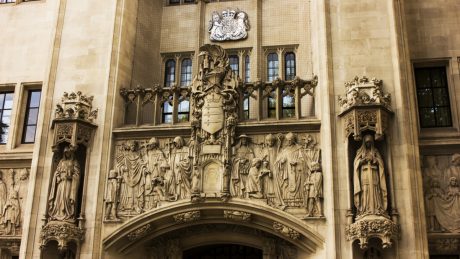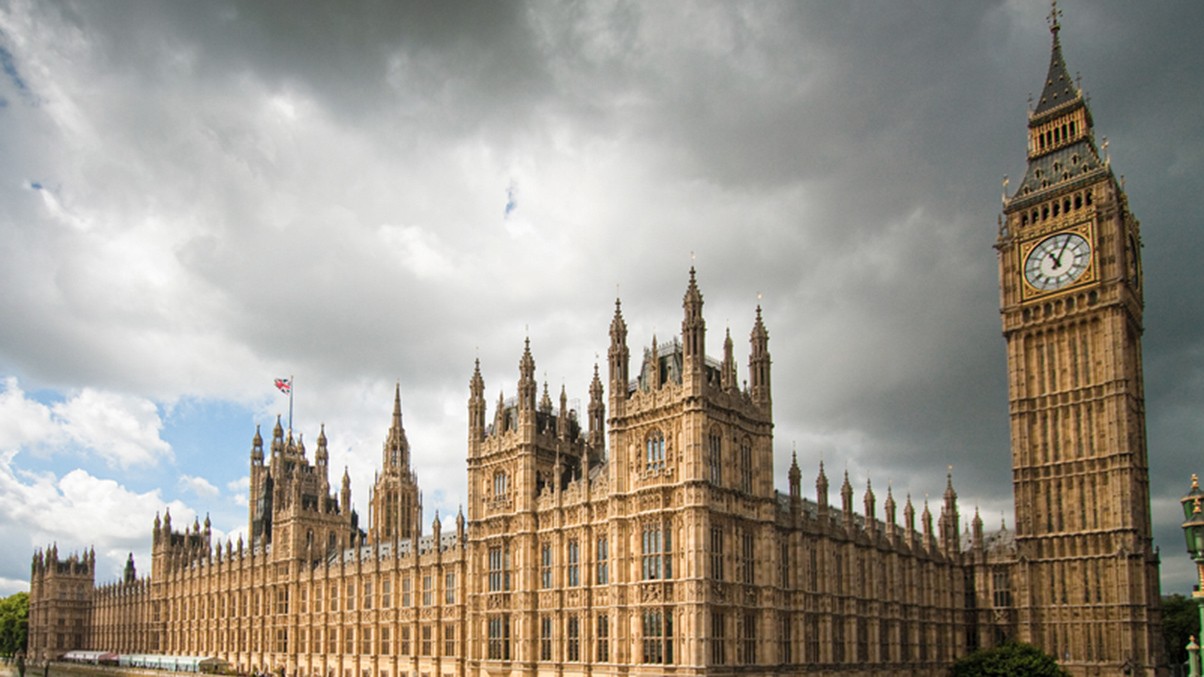The Supreme Court has today handed down its judgment in R (on the application of KBR, Inc) (Appellant) v Director of the Serious Fraud Office (Respondent) [2021] UKSC 2, an important decision relating to the Serious Fraud Office’s powers to issue notices on foreign companies under section 2(3) of the Criminal Justice Act 1987. In this article, David Savage, Head of Financial Crime looks at the case, and what the ruling means for the SFO’s investigative powers.
Summary
The Supreme Court has ruled that notices issued by the Serious Fraud Office (“SFO”) pursuant to section 2(3) of the Criminal Justice Act 1987 requiring the production of documents cannot be validly served on a foreign company with no fixed place of business in the United Kingdom, had never carried on business in the United Kingdom or had a registered office or any other presence here.
The ruling is another blow to the SFO’s attempts to expand the remit of its investigative powers. However, it will be appreciated by the international business world, where additional and unexpected exposure to a foreign regulator is unwelcome.
The legal community will welcome the decision as the Supreme Court has again shown itself to be a proponent of statutory international cooperation and comity.
The facts
KBR Inc (“KBR”) is a global provider of comprehensive solutions for aerospace and defence, energy and chemicals, intel and data science, and federal and civilian markets. It is incorporated in the United States.
The US Department of Justice (“DOJ”) and the Securities and Exchange Commission (“SEC”) have been conducting investigations into the affairs of Unaoil, a Monaco based company, in relation to international projects involving several global companies including KBR. Separately, KBR’s UK subsidiary, Kellogg Brown and Root Ltd (“KBR UK”) is under investigation by the SFO in respect of the activities of Unaoil. The SFO, DOJ and SEC investigations into Unaoil followed media reports that the company had allegedly facilitated corruption and bribery in the oil industry.
On 4 April 2017, the SFO issued a notice under section 2(3) of the Criminal Justice Act 1987 (the “1987 Act”) (the “April Notice”) to KBR UK. The April Notice made 21 requirements for the production of information and documentation “held by KBR UK”. KBR UK provided various materials to the SFO in response to the April Notice and made clear that certain material was not in its possession or control but, if and to the extent it existed, was held by KBR in the United States. A meeting was offered with the SFO in London to discuss the investigation. The SFO insisted that it should be attended not merely by lawyers representing KBR but by officers of that company. Accordingly, KBR officers agreed to attend.
At the meeting, the SFO gave a notice pursuant to section 2(3) of the 1987 Act to Ms Eileen Akerson, the Executive Vice President, General Counsel, and then also Corporate Secretary of KBR (the “July Notice”). The July Notice required KBR to collate material held abroad and produce it to the SFO under criminal penalty should it fail to do so. KBR did not have a fixed place of business in the United Kingdom, had never carried on business in the United Kingdom or had a registered office or any other presence here.
KBR sought to quash the July Notice on the ground that section 2(3) of the 1987 Act does not have extra-territorial effect.
The law – Section 2 notices
The SFO was established by section 1 of the 1987 Act, with the Director of the SFO conferred the power to “investigate any suspected offence which appears to him on reasonable grounds to involve serious or complex fraud”.
Section 2(3) of the 1987 Act provides:
“The Director may by notice in writing require the person under investigation or any other person to produce at such place as may be specified in the notice and either forthwith or at such time as may be so specified, any specified documents which appear to the Director to relate to any matter relevant to the investigation or any documents of a specified description which appear to him so to relate; and –
- if any such documents are produced, the Director may –
- take copies or extracts from them;
- require the person producing them to provide an explanation of any of them;
- if any such documents are not produced, the Director may require the person who was required to produce them to state, to the best of his knowledge and belief, where they are.”
A failure to comply with a notice pursuant to section 2(3) of the 1987 Act carries it with significant consequences, including imprisonment or a fine.
The case
KBR applied for judicial review to quash the July Notice on three grounds:
- The July Notice was ultra vires as it requested material held outside the jurisdiction from a company incorporated in the United States of America;
- It was an error of law on the part of the Director to exercise his powers under section 2 of the 1987 Act despite his power to seek mutual legal assistance from the US authorities;
- The July Notice was not effectively served by the SFO handing it to a senior officer of KBR who was temporarily present in the jurisdiction.
In respect of the first ground the High Court found that despite the principle that unless a contrary intention appears statutes have territorial but not extra-territorial application, section 2(3) of the 1987 Act must have an element of extra-territorial application. Lord Justice Gross observed that the section would extend to foreign companies in respect of documents held outside the jurisdiction “when there is a sufficient connection between the company and the jurisdiction”.
KBR ultimately failed on all three grounds, and the application was dismissed. KBR appealed on the first ground, following the High Court’s certification of two points of law as being of general public importance:
- Does section 2(3) of the 1987 Act permit the Director of the SFO to require a person to produce information held outside England and Wales?
- If so, does the Director of the SFO have the power to do so by reference to the “sufficient connection test”?
The appeal
Issue 1 – Does section 2(3) of the 1987 Act permit the Director of the SFO to require a person to produce information held outside England and Wales?
The Supreme Court commenced its consideration of the scope of section 2(3) of the 1987 Act with the presumption that legislation is generally not intended to have extra-territorial effect. It positively cited Lord Bingham in R (Al-Skeini) v Secretary of State for Defence [2007] UKHL 26; [2008] 1 AC 153 where he said: “Unless the contrary intention appears, Parliament is taken to intend an Act to extend to each territory of the United Kingdom but not to any territory outside the United Kingdom.” Such a presumption could, however, be rebutted in situations in which states legislate the conduct of their nationals while abroad, subject to limits imposed by the sovereignty of the foreign state. The Supreme Court held that because KBR had no connection with the UK, the presumption against extra-territorial effect applied.
The Supreme Court continued to consider whether the presumption against extra-territoriality was rebutted by the 1987 Act itself. The SFO contended that the wording of section 2(3) of the 1987 Act was deliberately wide. The Supreme Court was not persuaded, noting that “when legislation is intended to have extra-territorial effect Parliament frequently makes express provision to that effect”. Particular attention was paid to section 12 of the Bribery Act 2010, which criminalises conduct outside the United Kingdom if it would form part of a relevant offence if committed in the United Kingdom and if the actor meets one of certain defined criteria establishing a close connection with the United Kingdom. Section 2(3) of the 1987 Act contained no similar wording.
As to whether such an intention was implied, the Supreme Court heard extensive arguments from the SFO. While the court was immediately dismissive of the SFO’s argument that, by its nature, section 2(3) the 1987 Act must have an element of extra-territorial application, it did undertake a deep dive into the genesis and potential scope of the 1987 Act:
- The 1986 report of the Fraud Trials Committee chaired by Lord Roskill (the “Roskill Report”) recommended that the organisation with overall responsibility for the investigation and prosecution for serious fraud cases should be given powers comparable to those of the Department of Trade and Industry (“DTI”) under section 447 of the Companies Act 1985. This permitted the DTI to require the production of documents by “a body corporate incorporated outside Great Britain which is carrying on business in Great Britain or has at any time carried on business there” (emphasis added). The Supreme Court found no comparable provision in the 1987 Act applying section 2(3) to foreign companies carrying on or having carried on business in the jurisdiction.
- The court considered clause 18 of the Criminal Justice Bill 1986/87, which ultimately became Section 29 of the Criminal Justice Act 1988 and appeared in Part III entitled “Other provisions about evidence in criminal proceedings”. This provided that a magistrate or judge should have the power to authorise that a letter of request should be sent to or through an “appropriate authority” exercising jurisdiction in a place outside the United Kingdom requesting it to assist in obtaining evidence if it appeared that criminal proceedings had been instituted or were likely to be instituted if evidence was obtained for the purpose. The Supreme Court found that the clause indicated that Parliament intended that evidence should be secured from abroad by international cooperation, as envisaged in the Roskill Report.
Legislation subsequent to the 1987 Act has extended its ambit to investigating possible offences and even to a pre-investigation phase, subject to various protections and safeguards. The Supreme Court observed: “[S]uccessive Acts of Parliament have developed the structures in domestic law which permit the United Kingdom to participate in international systems of mutual legal assistance in relation to both criminal proceedings and investigations. Of critical importance to the functioning of this international system are the safeguards and protections enacted by the legislation, including the regulation of the uses to which documentary evidence might be put and provision for its return. These provisions are fundamental to the mutual respect and comity on which the system is founded.” - The court found further support in the case of Serious Organised Crime Agency v Perry [2012] UKSC 35; [2013] 1 AC 182. In that case, Supreme Court held that section 357 of the Proceeds of Crime Act 2002 (the “2002 Act”), (the wording of which is similar to that of section 2(3) of the 1987 Act), “confers on a United Kingdom public authority the power to impose on persons positive obligations to provide information subject to criminal sanction in the event of non-compliance. To confer such authority in respect of persons outside the jurisdiction would be a particularly startling breach of international law.”
The SFO relied on a number of authorities that, by analogy, it asserted supported its case that section 2(3) has extra-territorial effect:
- In R (Jimenez) v First-tier Tribunal (Tax Chamber), the Court of Appeal held that paragraph 1 of Schedule 36 to the Finance Act 2008 (the “2008 Act”) empowered HMRC to issue a notice requiring a UK taxpayer resident outside the United Kingdom to provide information for the purpose of checking his tax position. The Supreme Court distinguished the case on the basis that, among other things, the powers pursuant to the 2008 Act were expressly limited for the purpose of checking the taxpayer’s tax position. This, therefore, meant that the powers were necessarily and only exercisable in relation to someone who is or may be liable for tax in the United Kingdom and who, to that extent, had an identifiable relationship with the United Kingdom.
- The Supreme Court was not persuaded by the SFO’s reliance upon a number of cases in which various powers under the Insolvency Act 1986 (the “1986 Act”) have been considered to have extra-territorial effect. The court found that while extra-territoriality is a feature of the 1986 Act, the exercise of that jurisdiction is protected through statutory safeguards. Lord Lloyd-Jones held that “the question whether a statutory power is to have any extra-territorial effect will depend on the wording, purpose and context of the specific statute when considered in the light of domestic principles of interpretation and principles of international law and comity”.
The Supreme Court consequently found that it was not easy to reconcile Parliament’s intent with the SFO’s submission that section 2(3) of the 1987 Act confers a power whereby a UK authority could unilaterally compel, under threat of criminal sanction, the production here of documents held abroad by a foreign company.
Issue 2 – If so, does the Director of the SFO have the power to do so by reference to the “sufficient connection test”?
Addressing this point succinctly, the Supreme Court found that there was no justification for implying a “sufficient connection test” into the wording of section 2(3) of the 1987 Act because:
- Such a reading would be inconsistent with the parliamentary intention as evidenced by the scheme and history of the legislation.
- Section 2(3) confers a power not on a court (as is the case section 221 of the 1986 Act which gives power to courts in this jurisdiction to wind up overseas companies) but on the SFO. As a result, there is no scope here for limiting the operation of a broad interpretation or safeguarding against exorbitant claims of jurisdiction by the exercise of judicial discretion.
- A statutory rule which empowers the SFO to demand the production of documents by foreigners outside the jurisdiction when there is a sufficient connection between the addressee and the jurisdiction, without defining what would constitute such a connection, would be inherently uncertain.
- There is no basis for the implication of such a limitation, and any attempt to do so would exceed the appropriate bounds of interpretation and usurp the function of Parliament.
Accordingly, the Supreme Court allowed the appeal.
Analysis
This decision will be welcomed by the international business community, which has been following this matter closely. The Supreme Court finding that the SFO does not have carte blanche to request documents under section 2(3) of the 1987 Act from corporations with no UK nexus is clearly correct, as the SFO has powers to seek mutual legal assistance with a view to collecting and subsequently assessing evidence and those powers have appropriate checks and balances.
In undertaking a thorough review of the scope of section 2(3) of the 1987 Act, the Supreme Court has provided clarity and certainty. Furthermore, foreign companies can take comfort in the finding that section 2(3) of the 1987 Act is not to be interpreted as applying to them should they have some form of “sufficient connection” with the UK. There is no suggestion in the 1987 Act that it applies to foreign companies provided there is a “sufficient connection” to the UK and the Supreme Court has previously limited disclosure orders under the 2002 Act to the UK, so the KBR ruling creates a consistent approach.
It is also quite clear that Parliament does not view section 2(3) powers as extra-territorial. The Crime (Overseas Production Orders) Act 2019 (the “2019 Act”) received Royal Assent on 12 February 2019 and came into force on 9 October 2019. The 2019 Act implements statutory safeguards as to the extra-territorial use of production powers in respect of electronic information located or controlled outside the United Kingdom for use in the investigation and prosecution of indictable offences. This power can only be exercised where a designated international cooperation arrangement exists between the UK government and the government of the country where the electronic information is located or from where it is controlled. The extra-territoriality of the 2019 Act is patently clear and the Supreme Court’s decision is likely to have taken cognizance of both the effect of the 2019 Act and its interrelation with the US Clarifying Lawful Overseas Use of Data Act (“the “CLOUD Act”).
As a consequence, there is also a note of caution. The court was clear that a UK company holding documents on a server abroad will not be able to resist a section 2(3) notice on that basis alone. Care must, therefore, be taken when considering how to respond to a section 2(3) notice and whether, on the facts, the SFO has correctly served it. For many international companies issued with section 2(3) notices, the judgment is likely to have little impact on their approach in reality. The SFO has made it clear that handing over documents will be viewed favourably and will be a relevant consideration in its charging decision, including whether to consider a Deferred Prosecution Agreement. The public interest arguments in engaging in co-operative conduct are also patently clear. For the SFO, there was thinly-veiled criticism as to how the July Notice was served, the SFO itself having induced an officer of KBR to travel to the United Kingdom for the meeting at which purported service occurred.
Following the High Court decision, concerns had been raised as to how, upon receipt of such a notice, companies would be able to comply with it, yet also comport with local data privacy, employment, and corporate law. This pragmatic decision from the Supreme Court will provide foreign companies with more certainty as to when and how they must comply with SFO investigations.
David’s article is also featured in the Evening Standard, click here to view.
You can find further information regarding our expertise, experience and team on our Financial Crime page.
If you require assistance from our team, please contact us or alternatively request a call back from one of our lawyers by submitting this form.
Subscribe – In order to receive our news straight to your inbox, subscribe here. Our newsletters are sent no more than once a month.




